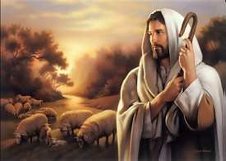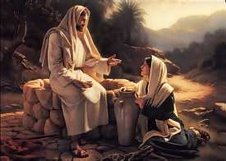*A word to the wise*
"The Word of Wisdom is a revelation given by Joseph Smith on February 27, 1833, forbidding the use of hot drinks, alcoholic beverages and tobacco. Mormon writer John H. Stewart wrote concerning the Word of Wisdom that "not one can hold high office in the Church, on even the stake or ward level, nor participate in temple work, who is a known user of tea, coffee, liquor or tobacco... 'The prophet himself carefully observed the Word of Wisdom, and insisted upon its observance by other high men in High Church positions...' (Joseph Smith the Mormon Prophet, 1966, p.90). In spite of this statement by John J Stewart, the evidence shows that Joseph Smith did not keep the Word of Wisdom, and at times he would even advise others to disobey it. In a thesis written, at the Mormon-operated Brigham Young University, Gary Dean Guthrie gives the following information: "Joseph tested the Saints to make sure their testimonies were of his religion and not of him as a personal leader. Amasa Lyman, of the First presidency, related: 'Joseph Smith tried the faith of the Saints many times by his peculiarities. At one time, he had preached a powerful sermon on the Word of Wisdom, and immediately thereafter, he rode through of Nauvoo smoking a cigar. Some of the brethren were tried as was Abraham of old.' (Joseph Smith As As Administrator, Masters Thesis, Brigham Young University, May 1969, p161)...
...Joseph Smith admitted several times that he drank wine, and under the date June1, 1844, he stated that he had "a glass of beer at Moessers." (www.utlm.org/onlineboods/changech2.html)
The Word of Wisdom was not an important revelation for him to follow, only for the Saints who believed in their prophet. So, the next time a Mormon boasts about the Word of Wisdom:
Remember "It's not what goes into the mouth that defiles a man, but what comes out of it."
The Word of Wisdom?
Polygamy-One Of Those Changes
Angel of Light
"In September, 1823, and at later times, Joseph Smith received visitations from Moroni, an angel of light, who revealed the resting place of the ancient record form which The Book of Mormon was afterwards translated." (Doctrine and Covenants - Pearl of Great Price, The Church of Jesus Christ of Latter-day Saints, 1968, Explanatory Introduction, 3rd paragraph)
According to the new testament, an angel of light is the devil. "For such are false apostles, deceitful workers transforming themselves into apostles of Christ. And no marvel; for Satan himself is transformed into an angel of light. Therefore it is no great thing if his ministers also be transformed as the ministers of righteousness, whose end shall be according to their works." (2 Corinthians 11:13-15, KJV) The Mormon church refutes the fact that the angel that came to Joseph Smith was satan. They respond by using Mormon scriptures and a couple of new testament scriptures that are taken out of context. The first scripture that is twisted to their own agenda is 1 John 4:1 which reads: "Beloved, believe not every spirit, but try the spirits whether they are of God; because many false prophets are gone out into the world." The Mormons like to use just part of this scripture to justify Moroni as an angel of God. The scripture is speaking of false prophets not angels.
Then the Mormons use 1 John 4:2-3 to give continued support for the angel Moroni. The scripture reads: "Hereby know ye the Spirit of God: Every spirit that confesseth that Jesus Christ is come in the flesh is of God. And every spirit that confesseth not that Jesus Christ is come in the flesh is not of God: and this is that spirit of antichrist, where ye have heard that it should come; and even now already it it in the world." This scripture is not about angels and the validity of them. It was Johns purpose to expose false teachers and give assurance of salvation. The people of the time this letter was written were confronted with an early form of Gnostic teachings.
Joseph Smith did not have an angel of God visit him but rather the devil in angelic form.
A Response
Methodist vs. Mormonism
(This is a response to the comment in part two of this subject. I thought it important to post here.)
Dear Alma,
Thank you for taking the time to read my blog.
I can elaborate a bit on this without writing a book. "Holy Race" is indeed considered by the Mormons as all who will become gods. Those who claim to be the 'Jews' of this dispensation.
In 1978 the revelation was not a "thus saith the Lord" revelation. (I guess this means that the 'revelation' did not come from the Lord.) The manifesto only changed the way Mormons do business and was under enormous pressure to change policy or risk their tax exemption status. "In 1966 Wallace Turner's, The Mormon Establishment, stated: "The most serious problem facing the LDS church today is the Negro question." Turner forcefully added that as long as the LDS church clung to its racist practices, it would be "a political and social cancer".........But as Turner wrote these words, events were taking place that would gradually lead to a drastic 1978 policy change for Mormons concerning Blacks and the priesthood. These events began unfolding as early as 1951, when David O. McKay took over as LDS president." (One Nation Under Gods, Richard Abanes, Four Walls Eight Windows, 2002, pg 364-365)
The docrine of the pre-existance which taught that everyone's place in the world is pre-determined by their conduct in the pre-mortal world. The more righteous spirits were born white and the less commendable spirits were not so fortunite to be born under favorable conditions. The less quality of life lived in the spirit world, the less quality of life in the mortal world. The punishment was being born with dark skin. Darker the skin, the less righteous the spirit.
In 2 Nephi 30:6, the scripture was changed from using the word "white" to "pure". The Book of Mormon has had 3,913 changes since Joseph Smith wrote it. This is what Joseph Smith had to say about Blacks: "Had I anything to do with the negro, I would conifine them by strict law to their own species..." (Joseph Smith, Jr., January 2, 1843, HC (Salt Lake City: Deseret Book Company, 1976/1980), vol. 5, 217-218), One Nation Under Gods, Richard Abanes, Four Walls Eight Window, 2002, pg 355-357)
Yes, I am careful.
Methodist vs. Mormonism
Compare 19th Century Methodists to Early Mormonism
PART TWO
(They say:)
Appealing to all members of society, regardless of social or economic status, even criminals who were often outside of organized religion. (www.mormonmatters.org, document from April 28, 2008)
-----------------------------------------------------------
(I say:)
At the beginning of the Mormon foundation, the blacks were not considered a holy race, but a cursed race. This has changed in the latter part of the 20th century, as a result, the Mormon scriptures had to be rewritten and Mormon doctrine changed. This was due to the fact that social pressure in the sixties and seventies was great to equal out the social standing of all peoples of all races. Mormonism had to change, or face grave consequences. Do the Mormons consider the blacks to be a holy race now after all the teachings that said otherwise? HUM? As far as economics, how can the Mormon church refuse a future tithe payer?
Methodist vs. Mormonism
Compare 19th Century Methodists to Early Mormonism
PART ONE
(They say:)
.Vigorous Missionary Work that helped spread Methodism around England and beyond. This is not unique to Methodism, but an enthusiasm for converts was a Methodist trait during Joseph Smiths encounter with them. (www.mormonmatters.org, document from April 28, 2008)
--------------------------------------------------------
(I say:)
[During the early 1800's, there was a mighty race within the religious community to gain the favor of those who were seeking more than what earthly wisdom could offer. The frontier of the new land was a crop ready for harvest and every sect of belief was hard at work trying to reap the cornucopia of the bounty. The work that was underway was a great revival in every direction. The "missionary" work done, not only by the Methodists, was alive in every denomination in the land at that time. The air was full of vigor and enthusiasm in all religions seeking new converts to their particular belief criteria. Missionary work was an outcome of the revival movement during the early 19th century resulting in the founding of the "American Board of Commissioners for Foreign Missions in 1810." (Christianity through the Centuries, Modern Church History, Earle E. Cairns, Academie Books, Zondervan Corperation, 1981, pg 419)]











